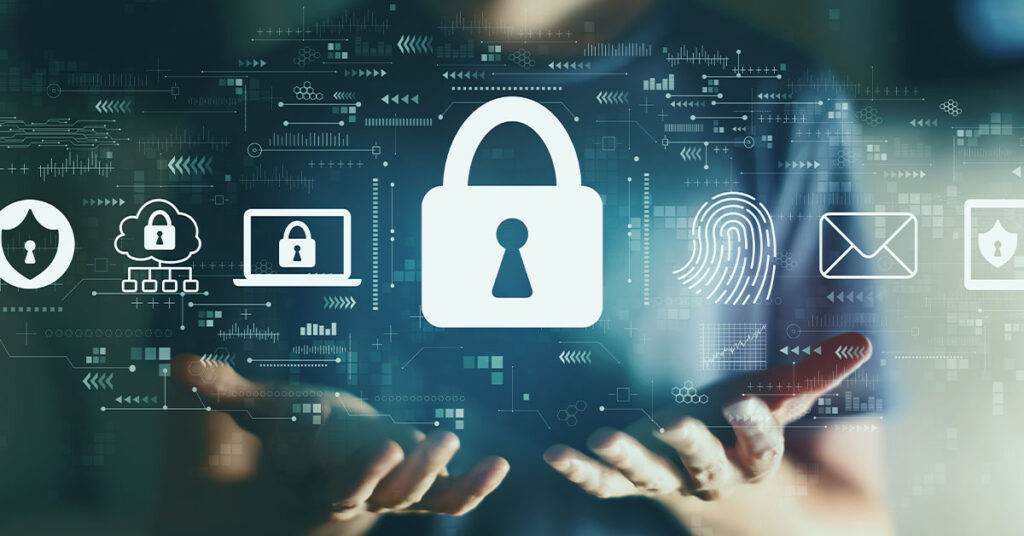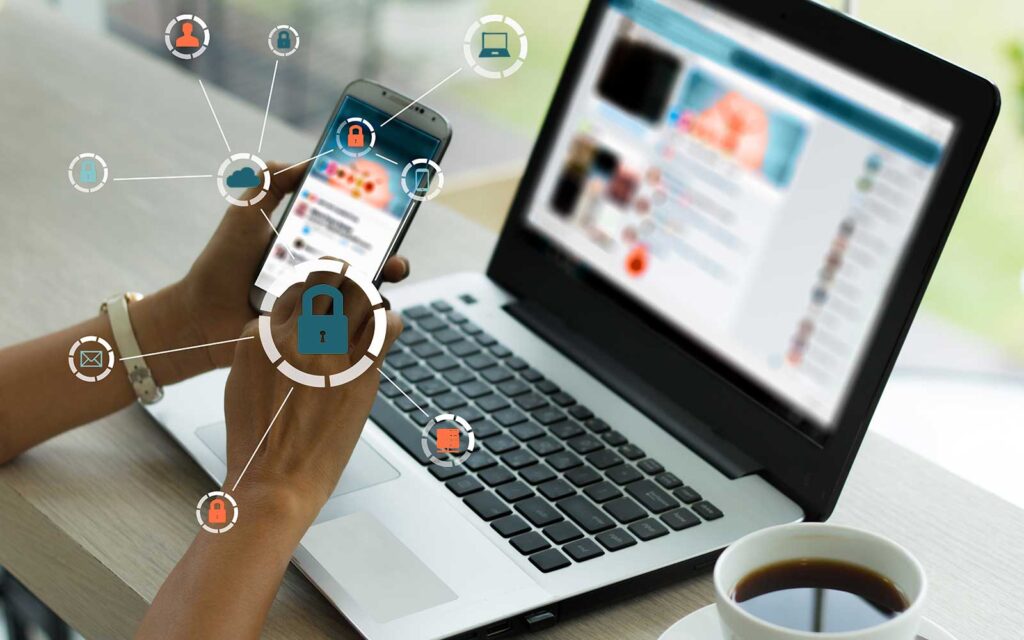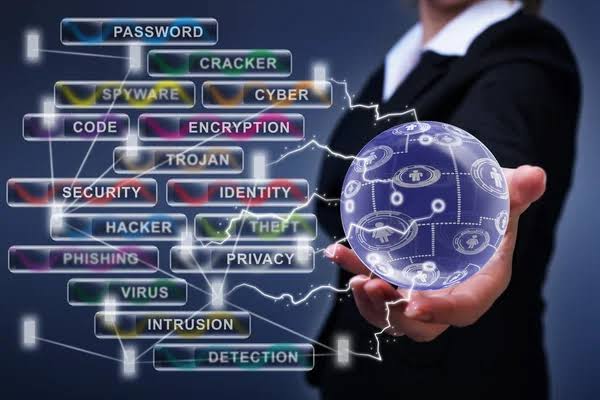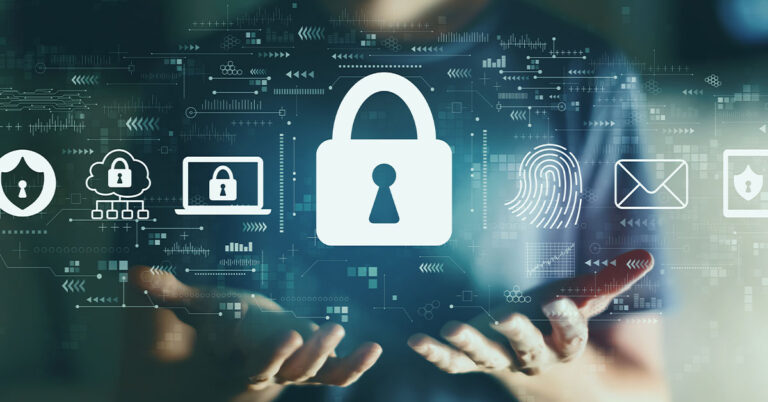The internet has gone from being something extra to something we absolutely need today. Almost every part of how we live now, like managing money, shopping online, getting medical help, and using school materials, depends on devices connected to the internet. Even though this makes things much easier, it also makes people, businesses, and governments open to different kinds of dangers online.
Cybersecurity is the work of keeping our computers, servers, phones, networks, and information safe from harmful attacks. It’s not just about technology; it also includes knowing what to do, taking steps to prevent problems, and having a good security plan that keeps us safe in the always-changing online world. Without cybersecurity, our personal information, how businesses work, and even the safety of a country could be at great risk.

1.What is Cybersecurity?
Basically, cybersecurity is a set of rules, actions, and computer tools made to protect our online stuff from being accessed without permission, damaged, or stolen. This means keeping safe:
The actual computers, servers, and internet routers that we use.
The programs we use, like apps and the software that runs our devices.
The information we have online, like personal details, money information, and secret business knowledge.
While many think cybersecurity just means installing antivirus software, it’s actually much bigger than that. It needs a mix of keeping networks safe, securing devices, controlling who can access things, and always watching for new dangers to stay protected from threats that keep changing.

2.Why Cybersecurity Matters?
Cybersecurity is important for a few very important reasons:
1. Protection of Sensitive Data
People store their private details online, such as bank information, social security numbers, and medical histories. Companies handle private information, business secrets, and customer data. If criminals get this information because of a weak spot in security, it can lead to money problems, identity theft, and a ruined reputation.
2. Business Continuity
Cyberattacks can stop normal work, causing businesses to shut down and lose productivity. Some companies might lose a lot of money if their systems fail even for a short time. Good cybersecurity steps help systems stay working and withstand attacks.
3. Public Safety and National Security
Safe computer systems are needed for important things like hospitals, transportation, power plants, and ways to communicate. If these systems were hacked, it could have terrible effects on public safety and the safety of the country.
4. Building and Maintaining TrustIn today’s digital world, it’s really important for customers to trust businesses. People are more likely to use services, share information, and make purchases when they feel safe online. If there’s a security breach, it can be hard to get that trust back.

3. Common Types of Cyber Threats
Cyber dangers come in many forms, so knowing about them is key to defending well:
1. Phishing Attacks
Dishonest emails or fake sites pretend to be trustworthy so they can trick people into giving up passwords, credit card numbers, or other private details.
2.Ransomware
Bad software locks up a person&039;s files and demands money to give access back. This is one kind of cybercrime that is growing very fast.
3.Distributed Denial of Service (DDoS) Attacks
Attackers flood a website or network with too much data, which makes it crash and keeps real users from getting in.
4.Data Breaches
People who aren’t allowed get into private information, which then can be sold, shared, or used to commit fraud.
5.Malware
A big group of harmful software like viruses, worms, and spyware, made to mess up things or steal important data.
6.Man-in-the-Middle Attacks
Cyber attackers grab communications between two people to steal private details or change the messages being sent.

4.Best Practices for Strong Cybersecurity
Having good cybersecurity habits is very important for both people and companies. Here are some proven ways to make digital defenses stronger:
1. Use Strong, Unique Passwords
Make hard passwords with a mix of capital and lowercase letters, numbers, and special symbols. Don’t use the same password for different accounts.
2. Enable Two-Factor Authentication (2FA)
Adding another way to prove who you are (like a code sent to your phone) greatly lowers the chance of someone getting in without permission.
3. Keep Software and Systems Updated
Software updates often have fixes for security problems. Not updating leaves systems open to known dangers.
4. Be Careful with Links and Attachments
Don’t click on links or download files from people you don’t know. Cybercriminals often hide bad things in things that look safe.
5. Backup Data Regularly
Keep copies of your data somewhere safe offline or using secure online services. This makes sure you can get your data back if ransomware locks you out or a system fails.
6. Limit Access
Only let people who really need it get into systems and data. The fewer people who can get in, the less likely something bad will happen.
7. Educate and Train Users
People making mistakes is a common cause of security problems. Regular training helps staff and users spot and avoid suspicious things.

5.Cybersecurity in Everyday Life
Cybersecurity isn’t just for big companies; it affects everyone. Things like using public Wi-Fi, downloading apps, or shopping online can put you at risk. Here’s how to stay safe in everyday situations:
- Online Shopping: Make sure the website is secure (look for HTTPS in the address).
- Social Media: Share less personal information.
- Public Wi-Fi: Don’t use important accounts on open networks without a VPN.

Frequently Asked Questions (FAQs)
Q1. What is the main thing cybersecurity is trying to do?
A.It aims to protect computer systems, networks, and data from unauthorized access, cyber attacks, and damage.
Q2. Is just having antivirus software enough to stay safe?
A.It is not enough. A complete security plan also needs firewalls, regular updates, strong passwords, and safe online practices.
Q3. What signs might show that someone has hacked my device?
A.Signs include slow performance, apps you don’t recognize, pop-up ads, and strange activity on your accounts.
Q4. How are cybersecurity and information security different from each other?
A.Cybersecurity focuses on protecting online systems, but information security protects both online and printed information.
Q5. What should I do if I am affected by a cyberattack?
A.Disconnect from the internet, change your passwords, start a security check, and tell the right authorities about it.
Q6. Can intrusions also target smartphones?
A.Yes, they certainly can. They can be at risk from malicious apps, fake messages, and unsafe Wi-Fi connections.
6.The Increasing Significance of Cybersecurity
Cyber risks are happening more often and are getting more advanced. As online banking, shopping, and cloud storage grow, the possible bad effects are bigger than ever. Even small businesses, once thought too small for hackers to care about, are now often attacked because their security is weak.
For people, the risk is more than just money trouble. For example, if someone hacks your email, it could lead to identity theft, impersonation, and major personal problems. For businesses, a security breach could lead to lawsuits, fines, and long-term damage to their reputation.

Conclusion:
Cybersecurity should not just be seen as the job of IT departments; it is a team effort. In today’s interconnected world, one weak spot can put whole networks at risk. By following security advice, staying informed about threats, and investing in safety steps, we can create a more secure online world together.
The online world has many great possibilities, but these possibilities come with responsibilities. Protect your data, secure your systems, and remember: in technology, it is better to prevent problems than to fix them.


